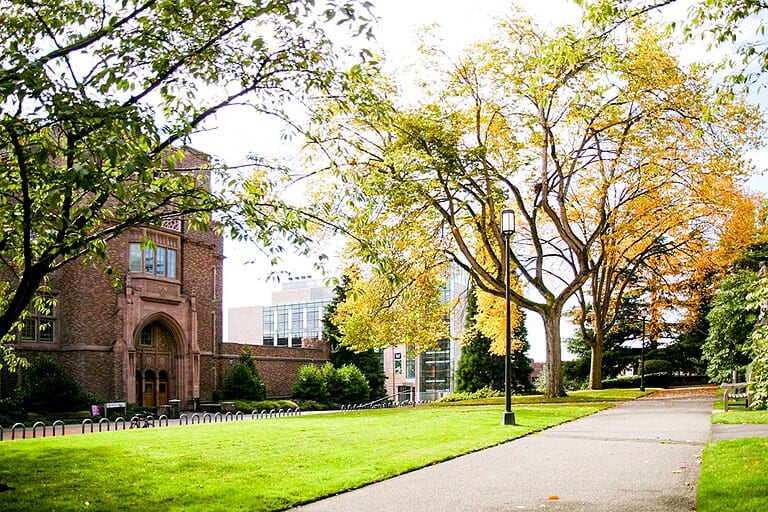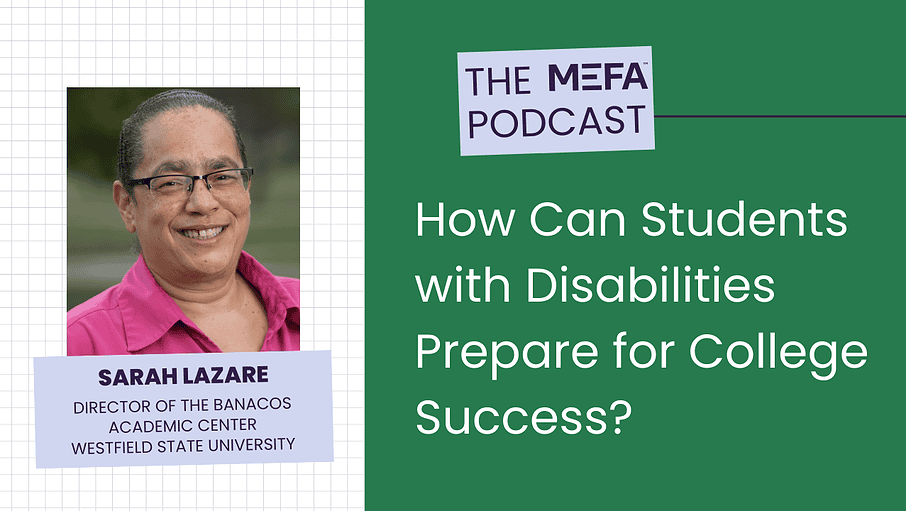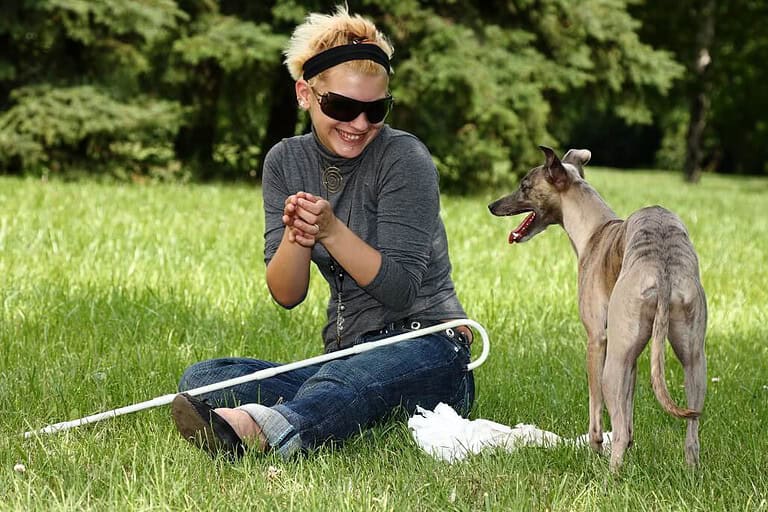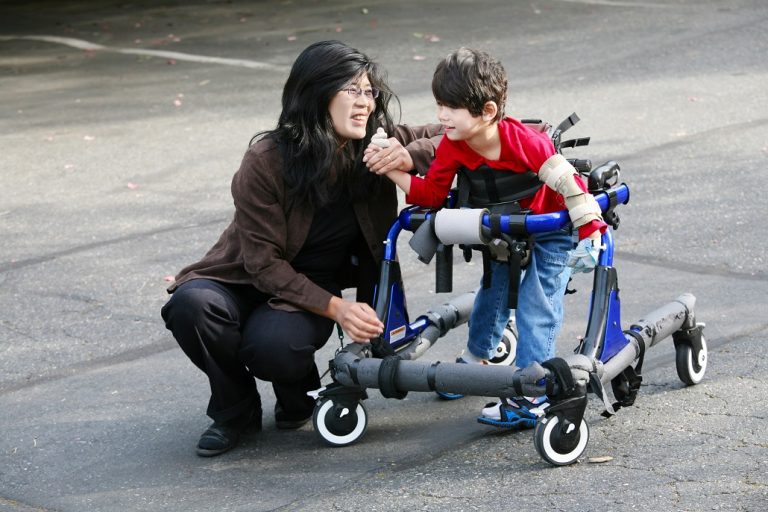

Resources Mentioned in the Episode
Jonathan Hughes: Hi everyone. This is Jonathan here from the podcast. August is national able to save month. Able accounts are tax advantaged savings programs designed specifically for individuals with disabilities and MEFA is the proud provider of the Massachusetts able program known as attainable. And so we thought, what better weighted for us to mark this occasion on the MEFA podcast than to highlight a conversation I had last fall. With Sarah Lazare from the Banacos Academic Center at Westfield State University, the Banacos Academic center houses, both the state’s most sought after college admissions program for students with learning disabilities and ADHD, and also houses, a disability support services program for all students. It’s a great resource and a great program. And Sarah is amazing. So enjoy this conversation. And if you have questions on the attainable program on able programs or any facet of planning, saving, and paying for college, please reach out to us. You can do that by email, at [email protected]. You can do that over the phone at 800-449-MEFA. Also you can also reach us on social media on Facebook at @MEFAMA. On Twitter at @MEFAtweets and on Instagram at @MEFA_MA but now we’ll hear a repost of my conversation from last fall with Sarah Lazare on how students with disabilities. Now let’s go to my talk with Director of the Banacos Academic Center, Sarah. Sarah has been supporting students academics since 1990 in various capacities, residential life, tutoring, mentoring, disability services, academic advising, and academic strategies programs. She’s worked in higher education with students with disabilities for over 16 of those years, and since 2012 is the Director of the Banacos Academic Center at Westfield State University, which is the university tutoring program, academic strategies, disability services, and learning disabilities program. Sarah, thank you very much for being here with me. Now we just a little bit on, and I have to apologize for earlier in the show, I mispronounced Banacos Academic, but the Banacos Academic Center. Why don’t I let you explain exactly what it is and what you do there?
Sarah Lazare: Great. So the Banacos Academic Center is a center for the entire university, Westfield State University. We have over half of the students come and use the center for whatever purpose, whether it be they come and study, whether it be, they are a tutor, they’re being tutored.
They come to an academic strategy program, or they’re part of one of our disability support programs, but it’s, they might even just come and print out a paper, but at least half of the campus, the students on campus use that service. So there are four programs in the Banacos Academic Center.
We have the university tutoring program and the university tutoring program is for all undergraduate students on campus. They receive services free. They request their tutors and get to set up their own appointments with tutors. Tutoring is really a place for students to ask questions, to learn how to study for that particular course.
It’s not a session where the students are taught the information. So it really is a student led service. We have our academic strategies program and our academic strategies program is also for all students on campus. It’s also a free service. And what we do is we try to, you know, fill in the gaps where students who are, it actually could be a new student, but I find that first year, as in juniors are usually the people who come to our sessions.
And these sessions are to ensure that students know how to do academics and college, how to plan for it, how to prepare for it, how to read for remembering and understanding how to create their own study guide, how to create effective and useful notes, prepare for exams and quizzes, how to take tests, how to stay on top of their assignments.
We try to be flexible in our sessions. Do what students are looking for. And then we also have our experience in what students need to know in order to be an effective college student and to be most successful. We do have some individualized support for academic strategies, but that is fairly limited.
So, we strongly recommend that students go to the sessions first and then they might follow up with me or somebody else on individualized needs. We have disability services. And we have a learning disabilities program. So those two programs work with students who have disabilities. We have about a quarter or more of the students on campus have identified as having a disability, which is a pretty large number.
Which also means though that the campus is very supportive, the campus has been, they’ve just learned. They ask questions. The faculty asks questions. It is probably one of the less stigmatizing places for a student to go to college because it is seen as so normal at Westfield State University, for someone to have a disability.
So disability services works with any student at any point in time in their academic career, whether it’s undergraduate, graduate, if they’re auditing a class to make sure that they have accommodations, if they have a documented disability, if someone’s disability is not documented and that disability is that condition that significantly limits a major life activity or substantially limits a major life activity.
It could be anything, it could be breathing. It could be their gastrointestinal system. It could be a mental health condition. It also includes learning disabilities and ADHD. So it could be anything. So we, you know, work with students who don’t have documentation to try to help them find the appropriate place to get documentation.
We do not do testing at our campus. So that’s something just to know there are schools that do that. And when they have that documentation, we sit down and we talk with them about how their condition affects them and talk about either how it affects their academics or their dining or their housing and work with them to try to find some accommodations that will help them be able to perform for the best.
That is the primary service of disability service. Our access advisor will also talk with people about other resources on campus. She in and of herself is not someone who a student would come in and sit down and talk about time management with, but she would point you in the right direction for that.
We also have our learning disabilities program, which has been around since 1979. It is basically the, of the Banacos Academic Center, how we came about the learning disabilities program. It’s an admissions based program, which means that when students apply to the university, they also apply to the learning disabilities program.
And that is the only way of getting into the learning disabilities program as well. So as a student, you have to show up in their sophomore year and say, I want to be part of this program. It’s too late. It’s an admissions based program. It starts when it starts and students have one chance to get in. So for the learning disabilities program, we are looking for college ready students.
That means students who have demonstrated that they can be successful in college. The admissions process is the student applied to Westfield State University, they will send in documentation that demonstrates the student has a learning disability and or ADHD. We prefer to have a copy of an IEP or 504 as well to see what accommodations you received in the past or modifications.
It also helps us determine whether a student is college ready. So if a student has been working with someone in class alongside them the entire time, then whether or not the student is actively using that person will help us determine whether they’re college ready. So if you are a student or a parent of a student or a guidance counselor, or somebody related to someone who might be eligible for the learning disabilities program, making sure that in college, I mean in high school, the student starts learning how to be a called student, how to be independent, how to learn independently, how to do their work independently.
That is a sort of thing that we are looking for when we’re reviewing applications for the learning disabilities program. Okay. And you can call me or anybody else at any time and say, this is what we do. And I’ll say, well, he might want to stop doing and start doing something else. Start, you know, giving the student a little bit more autonomy.
Putting more responsibility on the student, those sorts of things. So what we do in the learning disabilities program is when the student gets to us, we work with them to help develop some of those navigational skills through college. We work with them to help create their academic schedule. So we do academic advising for them in their first and second year, they get early course registration.
And when we take into account what the learning disability is or what the ADHD is, doing things like making sure that they have time between classes to study or to review their information because they have slow processing or they have memory deficits. So they need to, you know, really work at learning that information, doing it regularly.
We talk with them about those strategies. So we create their course schedule with them. We work with them once or twice a week. And this is at the student’s own volition. So the student, it’s an elective program, a student must make the appointment with us and show up, which is often a challenge for some students.
However, so when they sit down and they work with us every week, once or twice a week, or even every other week, we’ll figure out the need as we go along. They’re more likely to be successful, the more likely to be successful, they can share what’s going on with us. And when they share what’s going on with us, we can tell them whether they’re on point or not.
We will know for the most part, if they’re missing something, we can help them review their assignments, arrange how they’re going to study. And when they’re going to study what they’re going to study that week, and how they’re going to do it. So we get to do that academic advisor with the academic strategies and knowing the student’s disabilities, we can tell them much more individually towards them. We work with students from when they matriculate, when they start school during orientation through when they graduate in with their undergraduate.
Jonathan Hughes: Can you tell me what services you can offer students who use the disability services program? We did talk a little bit about the learning disabilities program, but we use the disability services program versus those who may be in the learning disability or ADHD track.
Sarah Lazare: Okay. So I’m actually, I’m going to start with this abreast as a frequent misconception. That the students who, well, first of all, track is a term that’s used in high school and we’re so different than high school. Students come in, they’re expected to be a student. Like every other student, they come in, they have to meet the same requirements, the academic requirements.
They have to have taken the same classes. There are some exemptions out there. But few, so it’s not really a trick. Okay. So students will, in the mission space program, the learning disabilities program, it includes people only who have ADHD and or a learning disability. They might have it, the disability, too.
So we have deaf and hard of hearing people in learning disabilities program. We have people with mental health conditions in our learning disabilities program. So one of the major differences is that with disability services, a student can register at any time. Anytime in their academic career. A major misconception is if I don’t get into the learning disabilities program, I’m not going to get any accommodations.
That is not true. That is false. We must provide accommodations for students under the law. We want to provide accommodations for students so you can be successful. We want successful students. We want students to not have to have that cognitive load of having to read a book when they haven’t been able to get the words from the paper, into their eyes and into their head.
If you need to listen to the book we want you to do that, we want you to be successful. So let’s work at that. And that’s for any student. What’s different with the disability services program is that students are referred out for those types of services that we do in the learning disabilities program.
One of the major differences is that a student does not automatically get early course registration. However, they might have a disability for which they need an accommodation of early course registration. Another difference would be that one-on-one sit down with an advisor. We would talk with them about finding that other person on campus, but it would not be the access advisor for disability services.
But we have other programs on campus. So trio student support services is a fabulous program to apply to if a student has any sort of disability. And that would get confirmed through at our space, would get confirmed through disability services. And we tell trio student support services. Yes, they’re eligible for this program because they have a documented disability.
So if they have a disability, if they are low income, which is a very low bar, so to speak, because you have to be receiving financial aid and that then you’re considered low income for the trio student support services or your first-generation college. And the first-generation college student is someone whose parents did not graduate from a four year with a four-year degree.
So they might’ve gone to community college and gotten their associate’s degree. They’re still considered a first generation called student and I strongly recommend that students go get the service. What I often see happening. And this might lead onto another question a little bit too, but what I often see happening is that students who are the first generation or who’ve been on an IEP or 504, and sometimes low income.
They’re just different issues that come along with that. But I think one of the common ones is that they’re not taught how to navigate college academia. Some students with disabilities, however often the parents or the teachers are, you know, guiding them around the school. This is what you do next.
This is what you do. You have this condition, so you must use this accommodation. So they’re not really taught how to do this on their own necessarily. Some are, I don’t want to, you know, no blanket statements [00:29:00] here. It’s a general statement. It’s something that I’ll ask students about instead of it. So trio student support services, great space.
You meet with an advisor once a week. They have professional tutors. They have, you know, sessions, they work on financial literacy. It’s another great program for any student at any university to apply to. It’s also free and the learning disabilities program is also free and disability services. No one should be paying for any of their accommodations if they’re reasonable accommodations.
So students in disability services have access to all the support systems that anybody else on campus has. In addition to trio student support services, they can use a tutoring program, they can use the academic strategies. They can use a reading and writing center that we have on campus. There are lots of different supports and it’s beneficial that disability services works with the learning disabilities program because we have, you know, six, seven people working together who all have long experience with people with disabilities and the types of resources that are helpful, and we’re able to brainstorm and you get support for that one student.
Jonathan Hughes: I listened to the webinar that you did with MEFA and some other students with disability programs from other colleges.
And I was really interested in that and I was also really interested in, yeah. You’ve had some good advice, I think, for parents whose students might use the center. And I was wondering if you could go over that a little bit.
Sarah Lazare: Okay. I would say for parents and guardians of students who have disabilities, if they have been in a position where they’ve had to direct everything, where they’ve had to fight to get the accommodations in the school, if they have a student who is not quite so self-motivated or is very distractible.
We often see this for students who have either ADHD or have some sort of mental health condition that will prevent them from getting up out of bed. In these situations, where the parent can be most helpful during the high school years is working with a student to be as independent as possible, is figuring out where those limitations are, is letting go.
Just like Frozen says, let it go, let it go. Whether it be little by little or maybe it’s just a task. Maybe it’s, you know, setting up some outside or external incentives or boundaries. But helping the student develop their own autonomy, helping students become more self-determined so they recognize their desire to do something, or they recognize they don’t have a desire to sweep the kitchen floor, but they still must.
So how can the student develop the determination basically to get that done? Where is it going to come from and being frank with your students, sitting down and asking those questions? There is plenty of help out there to figure out how to ask in an effective way.
So not the right way, but each person is different. What is giving more effective for maybe, or not the person to sit down and talk with that student about that with your adult child or almost adult child. But recognizing that your child is going to become an adult soon is really important. Thinking about what they’re going to need to do on the little things.
Like, can you do your own laundry? Can you crack an egg? Can you boil some water? Can you cook? Can you clean? Do you know that you have to clean and that somebody else is not going to do it for you? So if you’re the type of parent who’s just used to, you know, picking up after everybody, stop. Tell yourself, stop, and maybe incrementally put that responsibility on your soon to be adult child.
As soon as I walked them there, my door, they’re in it. And I’m going to treat and expect that I’m going to know they’re young adults and I’m going to treat them that way too, and try to help them build. But parents can help with at this point, simple things like sitting down, writing a schedule that is a shared schedule for the family.
So, you know, don’t you dare try to text me during this time, Annie, because I am in a meeting every week at this time, don’t text me. Because I feel like I have to respond to you immediately. Same with the student. They often feel like they have to respond to their parents immediately. So boundaries and structure so that there’s routine, there are habits, there are expectations of professionalism, even from your soon to be adult child, because they need to do that in school.
It’s not, hey Joe, I slept through class. Give me the syllabus. It’s dear Professor Smith. I apologize for missing class today. I’m wondering if you can help me with this information or where I could find this. So those would be some things. Another important thing would be making sure that students documentation is up to date and having them involved in it.
So we just, my access advisor just spoke with somebody yesterday or today. Who’s she, she asked the student to ride. The mom was in the picture, in the frame with her. She asked the student directly. So have you read this document, the IEP? Do you understand what we’re talking about here? And the students said, my mother never let me read it.
And I think parents are often afraid that when a student sees something that says directly you’re not as good as, or needs to improve on this, that it is just going to hurt the person. But if the student does not know where their limitations are and assumes things, then that also could be hurtful. So I think it’s more about coming to an understanding that having some sort of condition, which substantially limits a major life activity is normal.
It is normal. Most people have something going on with them. It might be a disability, it might be they’re homeless. It might be they have other hardships. Everybody has something going on that makes them work a little differently and makes them approach life a little differently. A lot of students with learning disabilities or ADHD or other disabilities report that they have something fabulous about themselves because something else doesn’t work or it doesn’t work as well, whether it’s compensation or whether it’s somebody with ADHD is extremely creative, extremely scattered.
And so, yeah, I’m trying to find the positive parts of a person, regardless of whether they have a disability or not is, is what is going to help a student or a person just, you know, be able to express themselves, to be able to succeed academically, be able to feel more confident, be able to feel like it’s okay to have dreams. And it’s okay to know that I might have to alter my dream because I cannot do that because of this. But, you know, working with the student to build up their self-confidence their sense of self, their self-worth is important.
But also doing that in recognition of whatever limitations are is also, you know, telling someone they can be whatever they want to be. That’s not true for everybody. I want to be a trial lawyer. Oh no, I couldn’t do that. But I also wanted to work with students who were traditionally excluded from higher education. So I’ve been able to do that and that is fabulous.
So yeah, so those are some of the things, making sure documentation is up to date. Making sure the student is coming from a place, I can do it, but you know, making sure they’re realistic about it as well. I’ve heard too many students who are in college say I was told I would never go to college.
I was told I’d never graduate high school and there they are going to get their masters. So not putting a limit, you know, pushing what limits others have put on them, just to make sure.
Having the student, like during the admissions process, let the student do as much as possible. Please don’t press the buttons for them. Sit back. Maybe every Sunday and Wednesday you sit down and you talk about the progress that you’ve made for Sunday. You’re sitting down and writing down a list. You’re not writing it.
The student is writing down a list of everything that needs to be. Let the student take charge as much as possible, create an Excel spreadsheet. They don’t know how to use Excel. We got paper and pen. Right? So start with the student does as much as possible when they’re in college. Or, I’m sorry, between college and high school and college.
So the summer, set down the expectations. Uh, FERPA is a privacy tool there to protect the student from people getting their information. So the administrators do not tell parents what’s going on. And so making sure that you sit down with a student in the summer and say, okay, I am paying for this. And since I’m paying for this, I do expect to get information right.
And asking the student, what information do you expect from me? What information do you want to share with me? So having a discussion and coming to some sort of agreement, instead of laying down the law is really important. So yeah, there is a carrot and a stick. Sometimes let’s try to find the carrot, try to find the thing that’s going to make them want to share information with you.
And then you will find some students just will not. And that’s another, that’s every person makes their own determination about that.
Jonathan Hughes: So you mentioned a few moments ago, resources for parents. So I wanted to say thinking of Banacos as a resource, if anybody out there is listening to this or watching this, and they’re interested in Westfield State and the Banacos and the programs that you offer, what should they be doing? What should their next steps be?
Sarah Lazare: I would say the fastest way to assure that someone’s getting in touch with you is to write an email to either LDP, which stands for learning disabilities. So LDP or DS, which is [email protected].
So write an email. If you go to our website, all those emails are listed. And there are several people attached to each email. So there is the better chance of you getting a faster response. You can also call us up at any time. And we’ll answer during business hours, but we’ll answer to in business hours, really I encourage my staff to share information, no proprietary over any information. We are fortunate to have enough staff so that you can contact us at any time during the day. There are some offices that need to minimize the amount of time they’re talking with prospective students and families.
So they might say, okay, contact us during winter, come to one of our open houses. But it’ll be a quick reply come during these times, but I will say that all the universities, the Massachusetts State University Directors of Disability Services or Accessibility Services. That’s another way to find a program.
They all want to help their students. You know, they want to work with students. They want you to be as prepared as possible. They want to make sure that you’re coming in with documentation that the school has done. If you don’t have money to go out and get a $3,000 or $6,000, if you’re in the Boston area, you know, documentation, evaluation of a learning disability or ADHD to make sure.
But it gets done in the school system as much as possible. And some schools will evaluate for ADHD as well as learning disabilities. Not all in, they’re not required to, but they must do the learning disability assessment. So making sure that you’re as prepared as possible to go into college, and asking us what are your requirements?
Most of the colleges on their websites can answer those questions. So go visit the website. And when you have a question or you want to, you know, solidify your understanding of it, call them up. Hey, yeah, just call, have your guidance counselors call, have your special education. If they’re disagreeing with you about when your person should get tested, have them call and say, what are you looking for at the college?
If there’s just like this little thing in the back we had sync. I don’t know. Just ask, especially if you’re at a session like this, just call up and ask.
Jonathan Hughes: I can’t tell you how much I enjoyed this conversation. So thank you very much for being here.
Sarah Lazare: Thank you, Jonathan. So much. I enjoy talking about this topic and spreading the word.
Jonathan Hughes: Well, I hope you enjoyed that once again. Thank you to Sarah for sharing your expertise with. And folks, if you like this show, you can subscribe to us wherever you get your shows from. And please remember to rate and review us so we can keep doing what we’re doing once again. My name is Jonathan Hughes and this has been the MEFA podcast.Thanks













